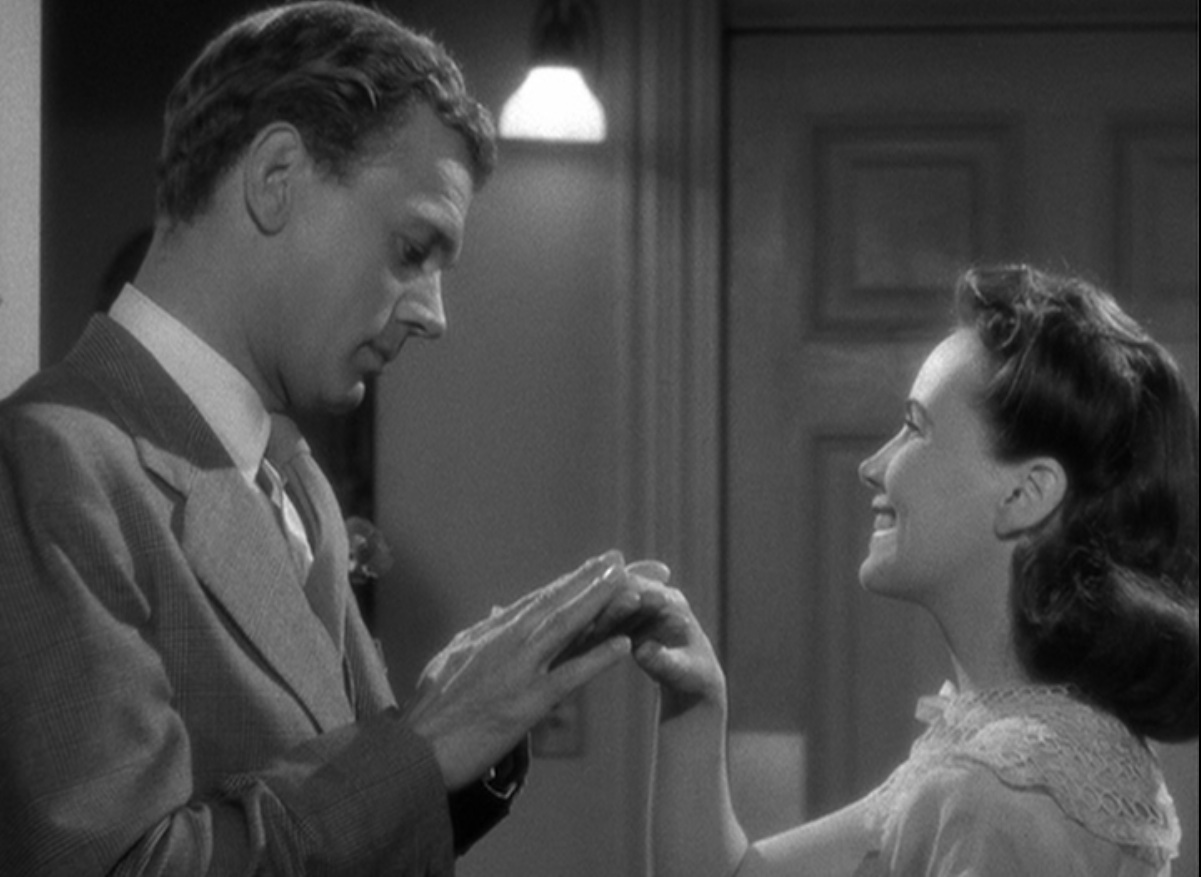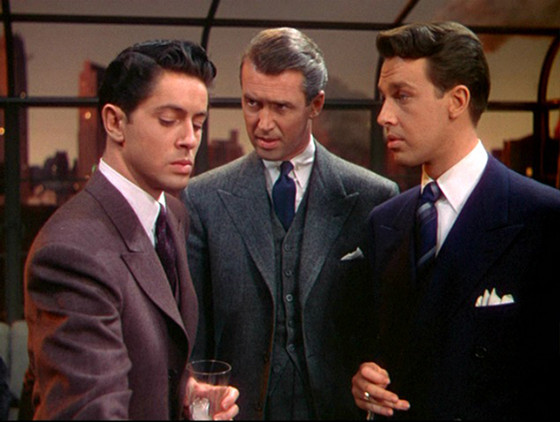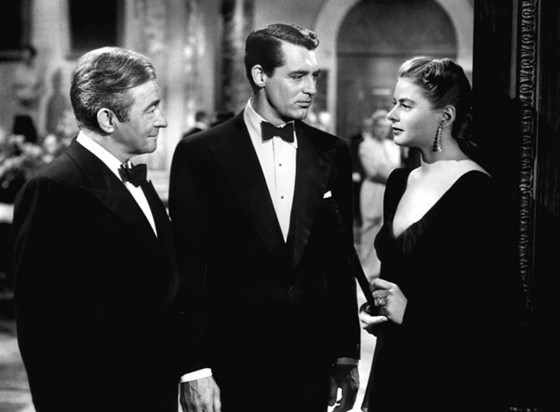5. Shadow of a Doubt (1943)

According to Hitchcock’s daughter, this was one of her father’s favorite of his films. In a small town setting, a young teenage girl has a special visit from her favorite uncle Charlie, whose wonderful façade is not what it seems. Shadow has shades of To Kill a Mockingbird with how real the small town life aesthetic looks and sounds. Unlike Mockingbird, Shadow has a much more dark and sinister underbelly that can even be shocking at times.
Many consider this to be Hitch’s first masterpiece and it stands out as one of his darker stories that appear quite simple on the surface. The two leads, Uncle Charlie (Joseph Cotton) and his niece (Teresa Wright) give terrific performances, Cotton particularly switching between loving uncle and psychotic. Much is talked about Hitch’s stylistic technique, but here lies the brilliance how he showcases character.
4. Rebecca (1940)

The only Hitchcock film to receive an academy award for best picture. Rebecca is the woman everyone is talking about, though she never appears in the film, mostly because she’s dead. The late wife of a rich aristocrat, Max de Winter, her spirit seems to hover over the thoughts of his new timid wife, played by Joan Fontaine.
She feels she probably married Max too early when everyone in the de Winter mansion acts very peculiar at the mention of Rebbeca’s name. The English gloomy mansion, and the creepy maid Mrs. Danvers are the best part of the film, giving it a atmosphere of haunted and elegant dread.
Rebecca’s thought of by Hitch and the public to be more of a director for hire picture. It was the first one he made in the U.S. though it still attains very English sensibility; though you can’t blame it for having Sir Lawrence Olivier play as Mr. de Winter. Guillermo Del Toro took a lot here for last year’s Crimson Peak. This is the better version.
3. Rope (1948)

In pure Hitch fashion, a murder is committed and then a party is thrown. Two intellectuals murder a colleague just to see if they can get away with it. They then invite the boy’s family to a party and his body hiding in the buffet. It’s funnier than it sounds. Only James Stewart, their old mentor who also attends begins to suspect the killer’s are capable of such horror. The film ends up being one of his most suspenseful films as well as his most darkly comedic, with a dash of overt homosexual tones.
Hitch would later dismiss Rope as a gimmick film, but it’s criminally under-appreciated as one of his strongest character movies. The experiment was to see if you could make a film work that appears to be all one continuous take. It’s excellent material to work with for such a technique, given the film takes place in real time in one location and Hitch masterfully moves the camera in a way that never draws your attention to what it’s doing.
2. The 39 Steps (1935)

Much like The Man Who Knew Too Much, 39 Steps is a very much a stripped down version of North by Northwest. A man is on the run for a crime he didn’t commit, while trying to expose the spies who framed him. It lacks much of the wit of North, but still holds all of Hitch’s techniques for beautiful suspense.
A stand out being a scene in which Robert Donat is hiding out on a farm with a suspicious farmer and his wife. The wife realizes he’s the wanted man, but the farmer thinks they’re having an affair. All this information told visually with the actor’s faces as they glance knowingly at one another.
As good as the cornfields look in North by Northwest, it’s hard to beat the haunting beauty of the black and white Scottish moors, in which the main character runs hand-cuffed to a beautiful woman as he runs from both the police and the real assassins. Everything about this film is textbook Hitch; a ‘how to move your story along 101’.
1. Notorious (1946)

The brilliance of Notorious is though it contains espionage, yet the most suspenseful aspect of the film is whether or not Cary Grant and Ingrid Bergman’s relationship will stand. It’s also the best use of Grant up until North by Northwest, and Claude Rains as an undercover Nazi is delectable as only Rains can do. You’ll almost forget that he’s standing on a box whenever he’s in the same frame as Ingrid Bergman. It gets everything right, from the noir-ish romance sensibility, to the thrilling espionage.
Notorious was also one of Roger Ebert’s favorite Hitchcock films, praising its camera work and how Hitch used the camera to perfectly manipulate his characters. Amongst popular culture, Notorious usually gets lost in the shuffle of Psycho, Rear Window, and The Birds. But, Notorious is Hitch at the beginning of being at the top of his from, elegantly marrying shots and composing a film of ripe passion and energy, seemingly based on a love triangle.
Author Bio: Kristopher Pistole is an actor and video blogger at youtube.com/kriswatchesmovies and lives in Los Angeles, CA. You can visit his movie review Youtube channel here.